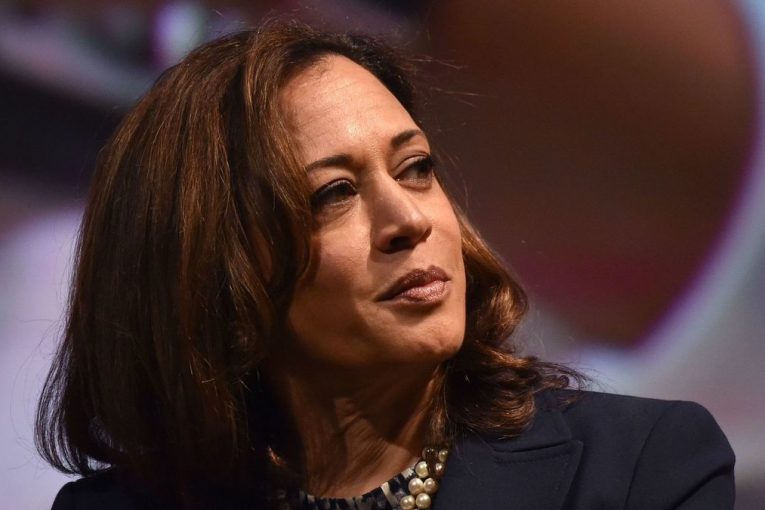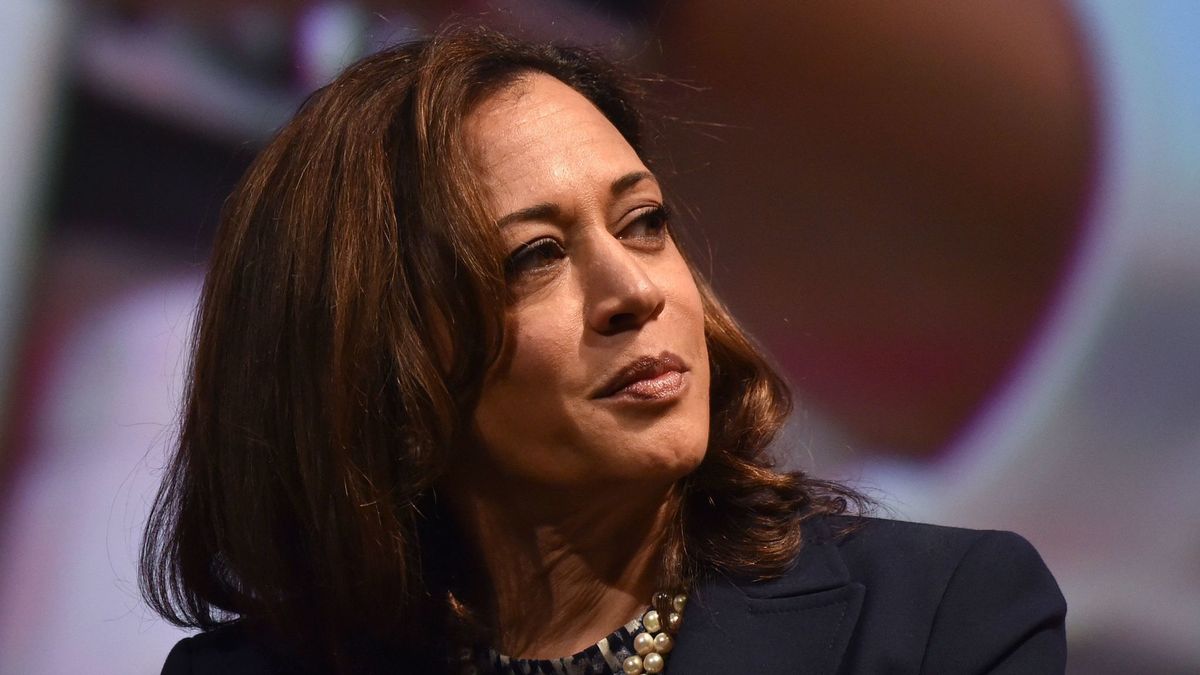

by Alex Vitale
Rather than encouraging more faith in the police, true reform requires dismantling the system that empowers them.
Senator Kamala Harris wants you to trust the police. In her new criminal justice reform package, Harris, a 2020 Democratic presidential candidate, focuses on restoring public trust in the police through a series of procedural reforms and accountability measures.
The plan calls for better data collection, setting up a review board for police killings to see what lessons can be learned, and more resources for training, oversight, and professionalization. She also pledges to step up the use of the Department of Justice to bring “pattern and practice” cases against local police departments that violate people’s civil rights, something used heavily by the Obama administration but abandoned under President Trump.
The goal of these reforms is to restore public trust in the police by making police more respectful, professional, law-abiding, and unbiased. That vision is consistent with the reforms articulated by President Barack Obama’s Task Force on 21st Century Policing, released in the wake of the Black Lives Matter movement. This approach argues that the problems with police are about the failure to properly execute their mission. Excessive use of force, racial bias, and unprofessional conduct are inconsistent with proper enforcement of the law and this, in turn, undermines public confidence in police. The implication is that people would quit being upset and protesting if the police just enforced the law properly.
The solution is adherence to “procedural justice,” which is premised on the belief that people feel better about and are more trusting of the police when police take the time to better communicate with the public about why they are taking enforcement action, listen to what the public has to say, and follow proper police procedures.
But what’s missing from the Harris package and procedural justice more generally is any real interrogation of the enhanced scope of policing that has occurred over the last 40 years. The Vera Institute of Justice released a data tool this year that detailed the extent of low-level arrests in the U.S. The organization found that in 2016, police made over 9 million arrests for nonviolent offenses. The target of these arrests are overwhelmingly people of color and poor white people.
The aim of this data exercise, the authors write, is to “reduce the criminal justice system’s footprint—by unlocking key policing data and, in doing so, elevating the narrative of overreliance on arrests and the need for viable alternatives.” This is exactly what’s missing from the Harris plan and the entire procedural justice approach. The problems of policing in America are not just the failure to properly implement the law. There is a significant problem of overpolicing driven by a toxic politics of using criminalization to manage the problems of poor and non-white people.
Proponents of procedural justice argue that reform can be achieved through more training on the use of force, reducing implicit bias, and enhancing communication skills. This can also involve facilitating dialogues between police and the public in the form of community policing, exposing civilians to police training, and encounter sessions in which police and the public share their stories of trauma and racism.
This approach can be seen most clearly in the work of the Justice Collaboratory and the Center for Policing Equity. They issued a report this month outlining strategies to accomplish this. And according to the authors, this report was influential in shaping the Harris plan. Like Harris’s plan, it emphasizes restoring public trust in the police. The report lays out five action steps: training police in procedural justice, putting more federal money into community policing, collecting and using data to hold police accountable, conducting listening tours in communities to explore past police abuses, and creating a national review board to assess the systemic factors behind improper police violence.
Harris has largely embraced this approach in her calls for more resources for training, community policing, data collection, and oversight.
But that approach misunderstands the roots of the problem. We do not need to give narcotics units implicit bias training and we do not need school police officers to become friendlier. We need to end the war on drugs and instead provide high-quality drug treatment, harm reduction measures, and targeted community investments. We need to completely replace school police with counselors, restorative and transformative justice programs, and more investment in public education. Failing to take on the ever-expanding role and power of police means that even if they are better trained and more professional, they will continue to needlessly criminalize millions of people because of their poverty—a strategy that is at its core a major cause of racial inequality.
It’s worth noting that there are two important attempts at decriminalization in the Harris plan. The first is Harris’s pledge to end the federal prohibition on marijuana, which is a major source of arrests in communities of color. The other is an acknowledgment that police may not be well suited to respond to mental health crisis calls. But this does not go nearly far enough and even these pledges are very thin on details. Harris maintains the entire federal drug prohibition infrastructure under her plan with just a carveout for marijuana. This is hardly the plan to “end the failed war on drugs” that she claims it is. And on mental health, she puts more resources into policing first, while working to improve the availability of mental health services.
This approach stands in stark contrast to a recent report released by the Leadership Conference on Civil & Human Rights and Civil Rights Corp and signed off on by dozens of national civil rights and social justice organizations. The report, “Vision for Justice 2020 and Beyond,” focuses primarily on reducing the scope and power of policing. It lays out as its primary mission not the restoration of public trust, but instead a program of investing in communities and individuals so that we can substantially scale back our use of police and prisons to manage social problems. It proposes concrete steps for ending the war on drugs at the federal and state level. It calls for banning the use of facial recognition and predictive policing tools, halting civil asset forfeiture, ending federal support for police militarization, and abolishing the 287(g) program of local police cooperation with the ICE deportation machine. Instead of fixing school policing, it demands federal support for school counselors and restorative justice programs so that we can eliminate school police.
If we want to actually reduce the burden of policing on communities, we must reduce our reliance on them. A more professional war on drugs is still a fundamental injustice at the heart of race and class inequality in America; people should not “trust” narcotics police no matter how much training and accountability is put in place. Harris’s plan is rooted in her prosecutorial past in that it continues to look to the criminal legal system to make communities safer, and this is the root of her mistake.
Alex S. Vitale is a professor of sociology and coordinator of the Policing and Social Justice Project at Brooklyn College. He is the author of “The End of Policing.” Originally published in the Appeal.






Support the extreme left, end up with the extreme right. Mark my words.
Reminds me of an old, great song… Johnny Cash … “the one on the left was on the right…”
And, the converse/reciprocal is equally true… both bugs the heck out of us who try to actually think…
How about:
And the parting on the left
Is now parting on the right
And the beards have all grown longer overnight
In reality, Kamala has never been extreme anything, that’s part of her problem right now.